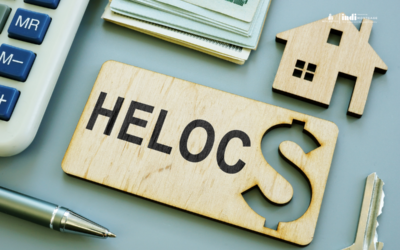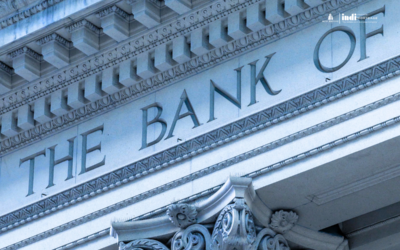Welcome To Our Mortgage Educational Blog About:
Tips for every first-time homebuyer: Everything to know.

You’ve finally made it—you’re ready to buy your first home! Congrats! But many, many details need to be sorted out before you get your feet wet as a first-time homebuyer.
What should you look for in the perfect home? Do you really need a mortgage broker? What are the best financing options?
Knowing where to even start can seem overwhelming and challenging with all the different steps involved in buying a home.
Everything from financing and bidding to inspections and paperwork can make this process stressful. But as long as you have a general knowledge of what’s involved, you’ll be able to buy your first house with confidence.
In this guide, we’ll answer all of these questions and more as we walk you through everything you need to know about buying your first home!
Steps you as a first-time homebuyer should follow
#1 See if you are financially ready to commit to buying a house
One of the biggest challenges a first-time homebuyer faces is that they lack a realistic understanding of what it takes to buy a home. It’s crucial to take stock of your financial situation and determine if you are ready to buy.
- Are you okay with a 15-25 year mortgage?
- Can you afford higher property taxes and insurance?
- Do you have enough money in savings to cover repairs, renovations, or unexpected expenses?
- Do you have the time to put in to maintain your home?
Answers to these questions will help ensure that buying your first house doesn’t become a stressful obstacle course rather than an exciting experience when it comes time to buy.
#2 Get your current debt under control
One of the biggest reasons people cite for not buying a house is their current debt.
You can use a loan or line of credit to buy your first house, but if you already have high-interest rate debt (like credit card or payday loans), paying that off before purchasing a home will save you money in interest over time.
If it isn’t possible to pay off your debt with cash, work on paying down your debts with low rates before buying your first home.
Just remember: if you use credit cards or other revolving debts to help finance your purchase, it will take even longer to pay them off because now they’re attached to an asset that appreciates in value.
#3 Determine the minimum down payment
As a first-time homebuyer, it’s important to understand how much money you need to put down when purchasing a home. That depends on how much your home costs.
You should know that Canada’s absolute minimum down payment is 5% for homes that cost $500,000 or less.
Keep in mind that depending on your region and type of mortgage, different lenders will have different requirements as far as minimum down payments go. Use these online mortgage calculators to better understand what your payments may look like.
If your down payment is less than 20% of your home’s cost, you will have to pay for mortgage default insurance.
#4 Can you afford the home you want?
Buying a house is one of life’s big milestones and one of its most significant financial commitments, especially for a first-time homebuyer.
Before diving in, make sure you can comfortably afford your purchase and handle a potential rate hike.
Remember that rates are likely to increase during your mortgage—and at times like these, it could hurt more than help if interest rates rise quickly.
If things aren’t going as planned with your current lender or you’re facing an uncertain economic future, now may not be the best time to buy a house and lock yourself into a long-term mortgage.
#5 Get a pre-approval!
Once you have a good idea of what kind of house (or condo) you can afford, get pre-approved for a mortgage.
A lender will look at your financial statements and give you an estimate on how much money they think it’ll take to get that dream place.
It’s not an official loan or commitment to lend, but it gives sellers confidence that they’re dealing with someone who’s able to secure financing. Also, it provides an official document to bring along with you on house tours.
Without one, sellers may ask why—and without a good answer, your bid might not be taken seriously.
#6 Use different first-time homebuyer incentives
If you buy your home before it’s built or renovate an existing home, you could qualify for a rebate for a portion of the sales tax given by the GST/HST New Housing Rebate.
The Home Buyer Plan (HBP) allows first-time homebuyers to borrow up to $35,000 from their retirement savings plan (RRSP) for a down payment without paying any taxes.
The Home Buyer’s Amount is a $5000 income tax credit applied to certain qualifying homes.
#7 Keep on saving because there will be other costs
This is something vital that every first-time homebuyer should keep in mind. You will have closing costs, a down payment and maybe even an origination fee, but that isn’t all.
Your lender might require private mortgage insurance (PMI) if your down payment is less than 20% of your home price. PMI will be added to your monthly mortgage payments, so make sure to account for that.
You may also need to pay additional closing costs, land transfer tax, and CMHC insurance.
#8 Consider using a mortgage broker
Mortgage brokers are an excellent resource when it comes to working with a first-time homebuyer.
They have access to a larger pool of mortgage lenders than would be available if you searched for mortgages yourself.
Therefore, a mortgage broker can present more options than an online search could provide, which is especially important for a first-time buyer who may not be familiar with all the mortgage options available.
#9 Should I choose an adjustable-rate mortgage or a fixed-rate mortgage?
As a first-time homebuyer, you should know that you have several mortgage options to choose from, including an adjustable-rate mortgage (ARM) or a fixed-rate mortgage which is the most popular among Canadians.
An ARM lets borrowers get a lower interest rate than they would with a fixed-rate loan, which can be ideal if rates are currently high and likely to fall soon.
On the other hand, a fixed-rate mortgage offers more certainty about how much your monthly payments will be.
Over a long period of time, there’s no telling whether you’ll end up saving money or paying more in interest by going with an ARM rather than locking into a fixed-rate mortgage early on.
#10 Put in an offer for your house and get insurance for it
No matter how much research you do into a potential home, getting an appraisal before committing to buying is always good. Some sellers are happy to do this with a sales contract, but others tell you they’re not obligated.
Either way, it’s in your best interest to have an independent professional give an estimate of a property’s value before deciding whether or not to buy it. Plus, if your offer is accepted, don’t forget to get homeowner’s insurance.
Though most lenders automatically require coverage for your mortgage payments and damages due to fire and other disasters that aren’t related to those payments (called loss of use), many lenders won’t cover natural disasters such as earthquakes and floods.
Conclusion
Are you ready to buy your first home? Reach out to me directly or start your application here: www.sandraforscutt.ca/mortgage-application/
Don’t hesitate to contact us with any questions you may have.
Recent Educational Blogs
First Responder Mortgage Program
Jan 2026 | First Responder Mortgage ProgramAt Metro Mortgage Group, we have deep respect for the everyday heroes of our city — the members of the Edmonton Police Service, EMS, and Fire Rescue Services. Your commitment keeps our community safe, often at great personal...
Pros and Cons of a Home Equity Line of Credit (HELOC)
Dec 2025 | Pros and Cons of a Home Equity Line of Credit (HELOC)If you’re a Canadian homeowner, you’ve probably heard friends or family talk about using a home equity line of credit, or HELOC. People often use it to renovate, consolidate debt, or help kids with school...
What the Latest Bank of Canada Rate Cut Means for Canadian Borrowers and Homeowners
Nov 2025 | What Rate Cut Means for Canadian Borrowers and Homeowners On October 29, 2025, the Bank of Canada made headlines by cutting its benchmark policy rate by 25 basis points. This move brought the policy rate down to 2.25%. For Canadians with mortgages, loans,...



